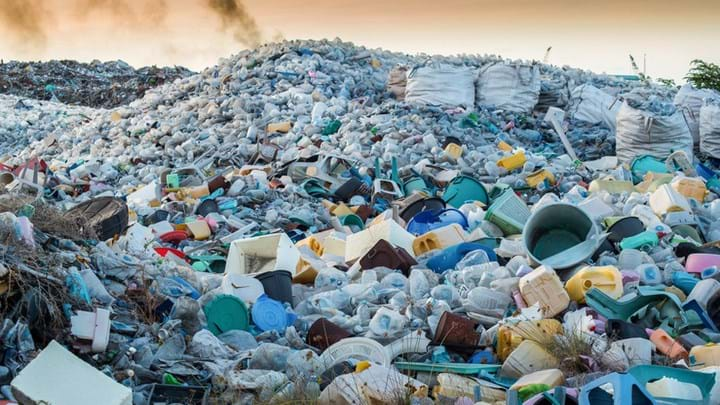UK government fails to support technology that could be key to combatting plastic waste

THE UK government has been criticised for dismissing recommendations to support chemical recycling and a ban on all UK plastic waste exports.
The recommendations were made in a November 2022 report by the cross-party Environment, Food, and Rural Affairs (EFRA) committee, which was informed by an inquiry launched in July 2021. The inquiry looked at the extent to which the government is delivering on its pledge to create a circular plastic economy, particularly in the packaging sector.
Among other suggestions, EFRA advised that government support chemical recycling adoption and make it a component of the UK’s plastics economy and waste management system. In its recently released response to the report, the government argued that chemical recycling activity is already present and it “therefore has a role to play where mechanical recycling is not viable”.
Geoff Brighty, chief sustainability officer of chemical recycling company Mura Technology, said the committee’s “proactive stance on chemical recycling as a viable and essential solution to the plastic challenge has…simply been dismissed”.
The government also argued against a ban on the export of all plastic waste from the UK by 2027, to reduce the country’s contribution to global plastic waste pollution. It said that it expects “legitimate exports” will continue to play a role in managing the UK’s plastic waste. However, it reiterated its commitment to banning plastic waste exports to countries that are not members of the Organisation for Economic Cooperation and Development (OECD). The EFRA committee highlighted that non-OECD exports only accounted for 20% of all UK exports in 2020, and the portion continues to shrink.
Undermines investment potential
Brighty called the lack of support for a ban and its implications on UK waste management infrastructure a “missed opportunity”.
“Defra are aware that there is a significant shortfall in infrastructure, yet, if this material is exported, not only is this open to continuing waste crime and dumping in other places, less material is available to be recycled domestically. This undermines investment potential within the UK and will divert infrastructure investment towards the EU and US.
“The time is now for strong leadership in waste and recycling. If the UK government is to meet its targets of eliminating avoidable plastic waste by the end of 2042, advanced plastic recycling capacity will need to be grown.”
The EFRA committee also recommended that the government should reaffirm its commitment to the 2042 target, “crucially, without the qualifier ‘affordable’”. The government disagreed with this recommendation.
The EFRA committee itself expressed “surprise and disappointment” at the government’s disagreement with its key recommendations.
Sir Robert Goodwill, chair of the EFRA committee, said: “It’s a shame the government has turned down recommendations from the committee’s long running and carefully considered inquiry.
“Plastic waste is one of the major environmental issues of our age – as a visit to many beaches or inland beauty spots will show. But what’s good for our environment could also have been good for the economy as well. Our recommendation to ban plastic waste exports by 2027 was partly aimed to help develop a multimillion-pound plastic waste recycling industry in the UK, supporting hundreds of jobs.
“We will be watching carefully to see if the government reaches its stated – but I’m afraid rather vague – ambition to eliminate what it calls ‘avoidable’ plastic waste by 2042 and make producers more responsible for the plastics they use. We acknowledge there are already some reforms in these areas – now we need to monitor their impact and see whether they properly tackle the problem of plastic waste.”
Recent Editions
Catch up on the latest news, views and jobs from The Chemical Engineer. Below are the four latest issues. View a wider selection of the archive from within the Magazine section of this site.




